The wasp is a kind of predator.
There are more than 20 species of wasps that can be found in Europe, Africa, Asia, and North America.
The wasp lives in forests and in rural areas, and in the wild, the number of wasps is large and stable.
These insects are classified as pests in most parts of the world because of their ability to remove bees from their habitats and destroy fruits.
The largest wasp species is the Asian wasp that can reach 2 cm in length.
Most wasp species can be recognized by the yellow and black stripes on their body.
The wasp has 2 pairs of wings, C-shaped eyes, and long antennas. It can be active both during the day and during the night.
The wasp eats tree sap (a fluid transported in xylem cells), fruits, and various insects but bees are their favorite type of food.
Lonely wasps are looking for hives.
They produce pheromones to inform other members of the colony when they identify their target.
The wasp lives in an organized society composed of the queen, many workers, and a few males.
It builds nests on branches, inside trees, in attics, barns, or under roofs.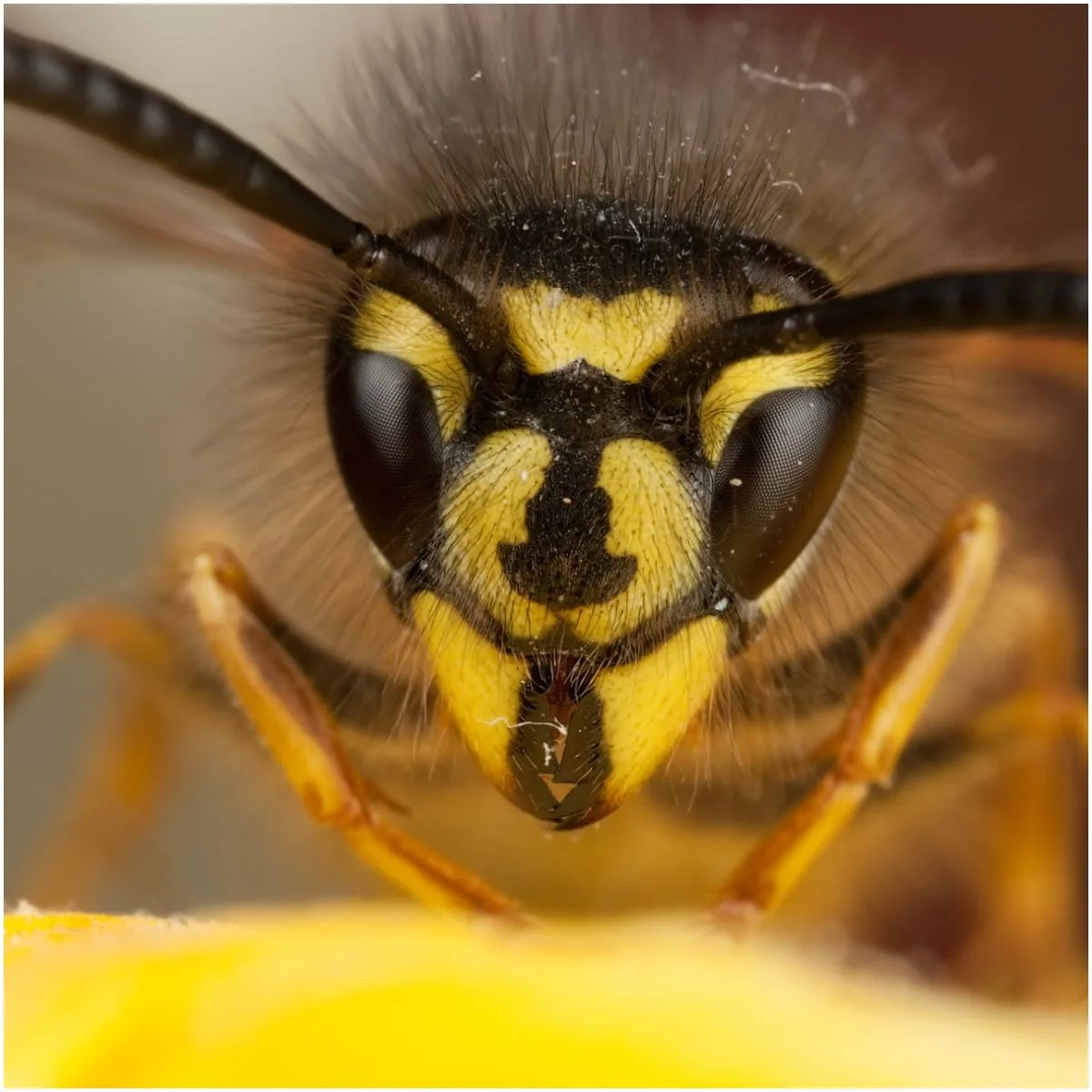
The nest is made of wood chewed with saliva and has a paper-like texture. It is full of rows and numerous rooms where the queen lays her eggs.
Each colony lasts only one season. After the queen hatches, at the end of the summer, she leaves the nest and mates with males from other colonies.
It stores sperm inside her body during the winter and uses it for egg fertilization in early spring.
The wasp attacks people in self-defense. Its sting can be fatal when the person is allergic to the venom. A wasp can sting several times.
READ MORE: Raven – Spiritual Meaning
Spiritual Meaning of Wasp + Myths & Legends – Animal Spirit Guides
Despite the negative connotations of daily life, the wasps are symbols of development, communication, socialization, the art of construction and order, and are associated with both good and bad superstitions.
For some native American Indians, the wasp is the creator of the Earth and a symbol of organization.
In some African traditions, they symbolize human evolution and human control over the circumstances of life.
In ancient Egyptian folklore, the wasp was recognized as having a major role in pollination, hence resulting in a symbol of fertility.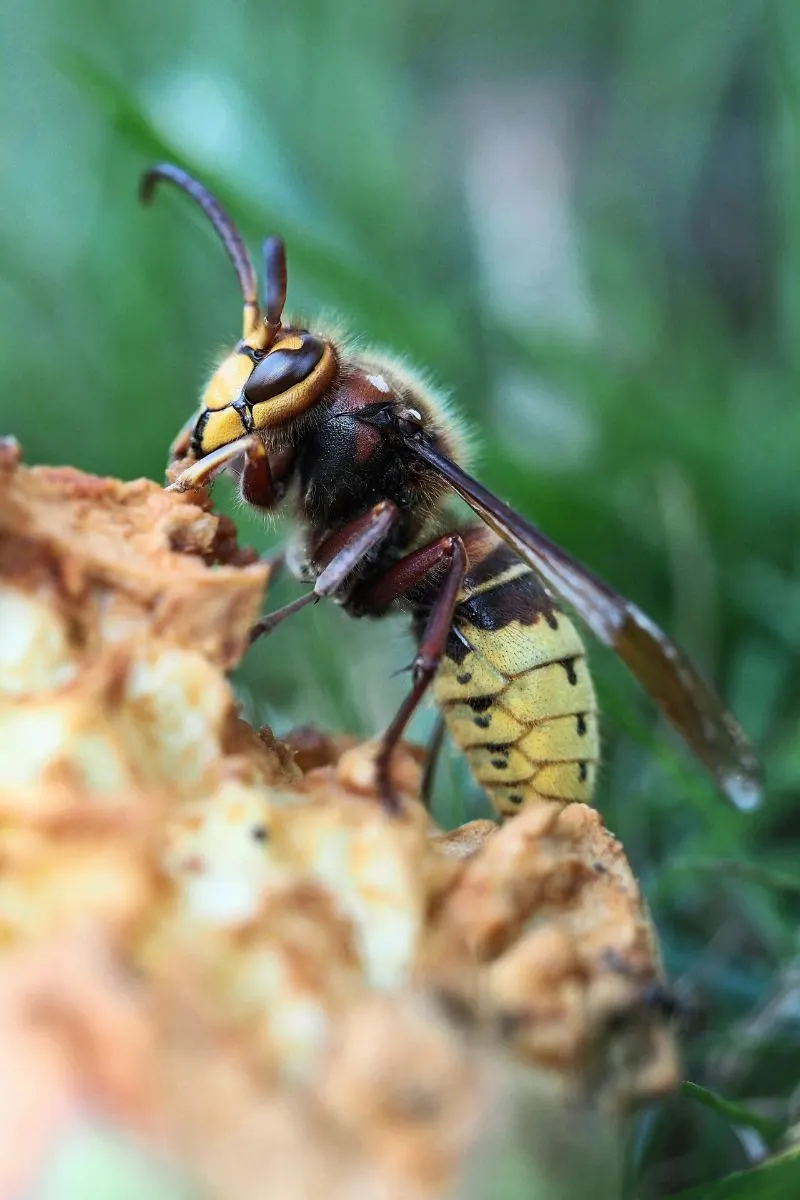
The wasps appear in the spring, so they are sometimes correlated with new beginnings and starting new projects.
Since they are very social beings, they can symbolize our relationship with family, the need to improve our communication with others, to express ourselves with clarity and efficiency.
In addition, given their skills in building their nests, they are connected with architecture, construction of houses and buildings.
In European superstitions, these insects were endowed with the gift of predicting the weather.
Thus, it was believed that when wasps were building their nest near the ground, it would be a mild winter, and if they were building it at height, a cold one was anticipated, with blizzards and abundant snow.
Either way, wasps trying to get into the house may be an indication of a cooler weather.
If they were seen flying in big swarms in the evening, it was a sign of great weather the next day, even very warm, but if they entered their nests in the dusk, hiding and sheltering, there would be a storm soon.
READ MORE: Dragonfly – Spiritual Meaning
If in a year, wasps, not bees, were the first to come into your house, it meant you would meet an unpleasant person. If, on the contrary, bees were the first into the house, it was a sign that you would meet someone pleasant, agreeable, who would be of great help to you.
It is also considered auspicious if wasps make their nest under the window, under the seam, or near the house. Wasps building their nest in a house meant that the people in it would live in that house for a long time.
Wasps buzzing on the doorstep of a house was a sign of money or fortune.
Whoever was stung by a wasp was warned that his enemies were about to overwhelm him or that he ought to be on guard of the dangers, envy, and deception of others.
In Central Europe, the girls would leave a piece of paper in the nest of the wasps, which they then wore in their clothing so that their loved ones would love them even more. In a strange superstition, unmarried young women would wear a wasp nest on their head to make sure they would win a man’s love!
In Italian superstitions, when wasps circle your house, you can expect to receive good news.
If you see wasps in small numbers when picking grapes, it is said that an elderly person in your family will die. In large numbers, they would announce a winter with great snow.
Shamanism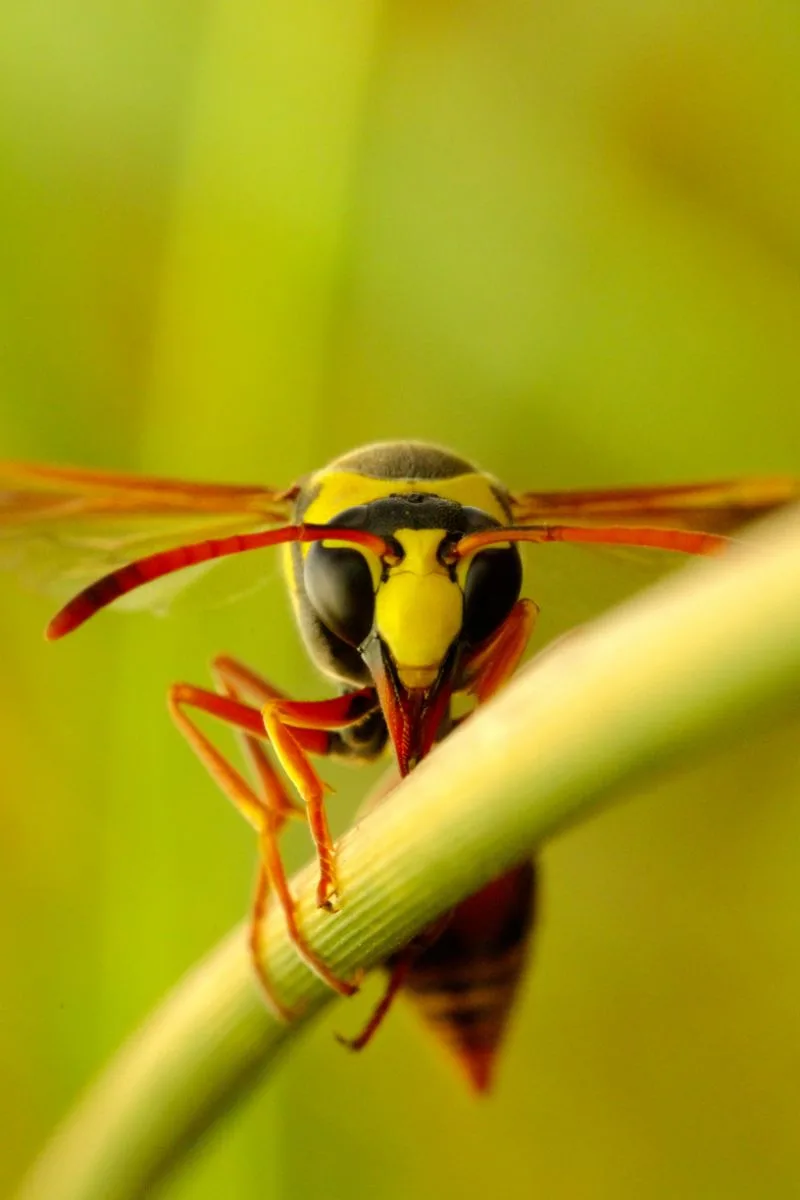
Within the rich tapestry of shamanic symbolism, where every creature carries a message from the spirit world, the wasp emerges as a figure of profound significance.
This enigmatic being, often met with trepidation in the everyday world, is revered in shamanism for embodying a blend of seemingly paradoxical qualities.
The wasp represents not just a healer, akin to the nurturing energies of the Earth, but also a formidable female warrior, echoing the fierce independence and strength of the Amazon warriors of lore.
The presence of a wasp in shamanic practice or sightings in nature is imbued with deep symbolic meaning. It heralds a time of transformation and invites the seeker to embrace the full spectrum of their inner power.
The wasp’s ability to strike with precision speaks to its warrior spirit, urging individuals to defend their beliefs and assert their boundaries with confidence.
Yet, this power is balanced by an inherent understanding of compassion and humility, reminding us that true strength is wielded with wisdom and restraint.
Resourcefulness is another vital lesson woven into the wasp’s essence. In shamanism, the wasp is seen as a master architect, constructing intricate homes with meticulous care, a testament to her energetic and playful spirit.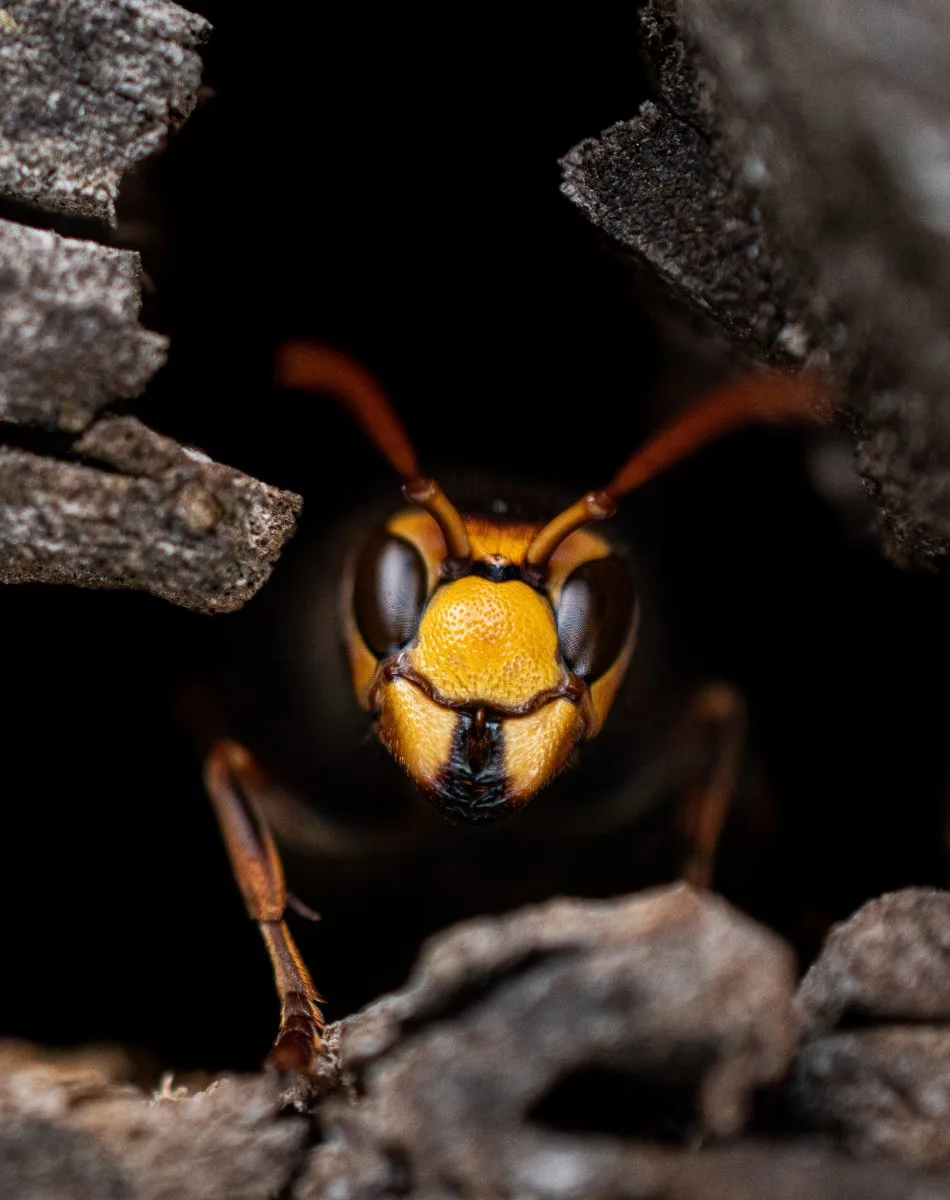
This characteristic encourages individuals to tap into their creativity and determination to overcome obstacles, building their dreams with the same dedication and ingenuity.
Furthermore, the wasp’s life cycle and behavior patterns offer rich metaphors for personal development and spiritual growth. The wasp’s connection to communal societies, where each member plays a specific role for the greater good, highlights the importance of teamwork and cooperation. It teaches the value of contributing to one’s community with one’s unique talents and strengths.
In moments of wasp sightings, shamanic wisdom advises seekers to reflect on the balance between their warrior and healer aspects.
It is an invitation to consider how they can assert themselves in their pursuits while maintaining compassion towards themselves and others.
It prompts an introspection into how they are building their lives—are they doing so with purpose, passion, and playfulness? Are they working harmoniously within their communities to achieve common goals?
The wasp, therefore, is far more than a simple insect in the shamanic view—it is a profound symbol of duality and balance, a sacred teacher guiding us on our path to self-discovery and fulfillment.
Her appearance is a call to awaken to our own complexity, to honor our inner warriors and healers, and to approach life with energy, resourcefulness, and joy.
Spirit Animal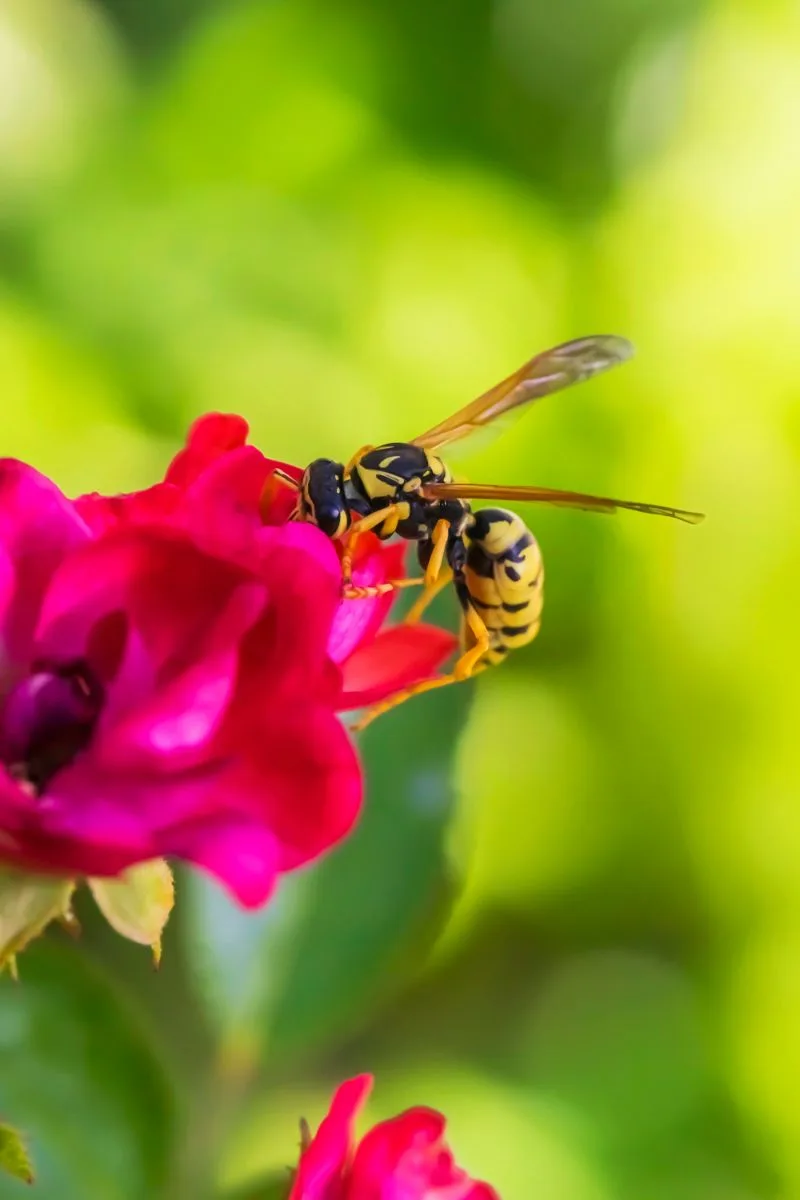
In the realm of spirit animals, the wasp emerges as a compelling emblem of unity and collective strength, weaving a narrative that transcends its earthly existence.
This creature, often misunderstood and feared for its sting, carries within it profound lessons of cooperation, communal living, and the intricacies of working towards a shared vision.
The wasp spirit animal beckons us to look beyond individual desires and to recognize the immense power that lies in joining forces with others, harmonizing our efforts for the greater good.
Wasps construct their lives around highly sophisticated societies, each individual contributing to the fabric of their community with unwavering dedication and purpose.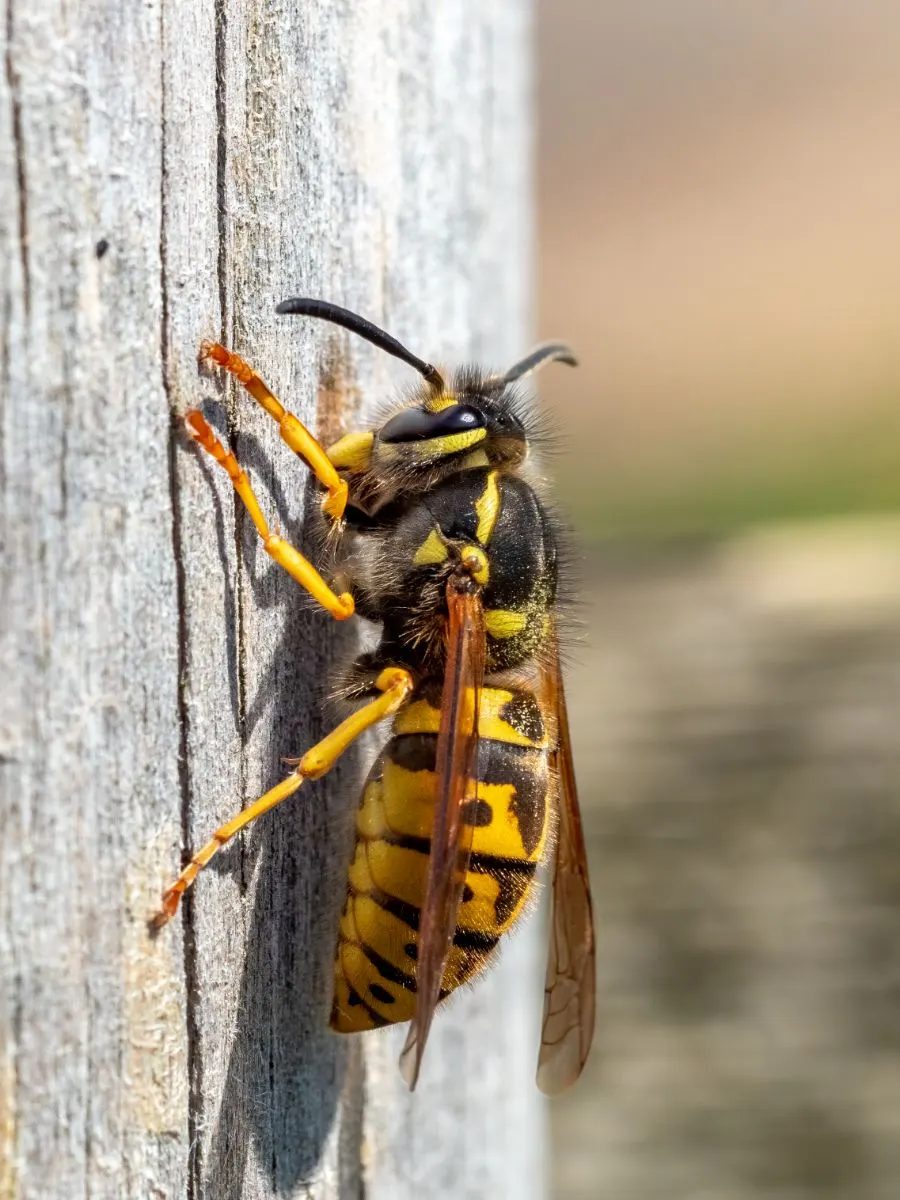
From the nurturing of their young to the protection of their queen and their home, every action within the colony is performed with the collective’s welfare in mind.
This natural tendency toward organization and mutual support is a potent reminder of the importance of fostering a sense of belonging and teamwork among humans.
The wasp spirit animal teaches us that every member of a community holds intrinsic value, possessing unique skills and roles that are vital to the well-being of the whole.
It challenges us to rethink traditional notions of hierarchy and competition, urging us to adopt a more inclusive and cooperative approach to achieving our objectives.
In a world where individualism often takes precedence, the wasp spirit animal serves as a beacon of collectivism, highlighting the remarkable achievements that can be realized when we unite under a common cause.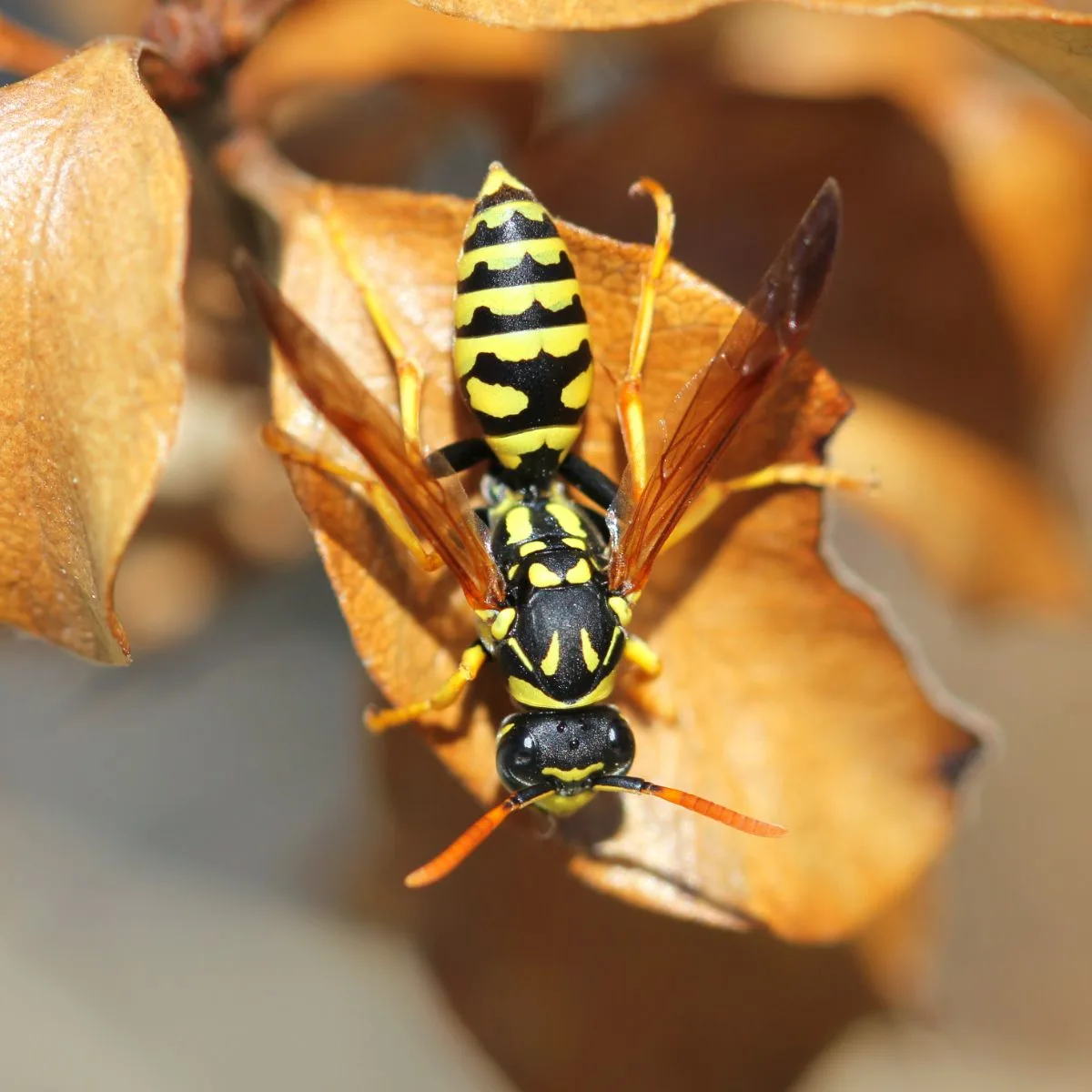
To embody the essence of the wasp spirit animal is to cultivate a deep understanding of interconnectedness and interdependence. It is an invitation to contribute our talents and energies toward collective endeavors, recognizing that true strength is not found in solitary pursuits but in the bonds we forge with others.
This spirit animal encourages us to build communities where empathy, respect, and mutual aid flourish, creating environments where every individual feels valued and empowered to contribute to the collective vision.
The wasp’s message also extends to the realm of personal growth and transformation. Just as the colony thrives through cooperation, so too can we achieve our fullest potential by seeking the support of our peers and offering our help in return.
The wasp spirit animal reminds us that life’s most challenging obstacles can be overcome through teamwork, and that the path to success is paved with the milestones of shared struggles and triumphs.
Protection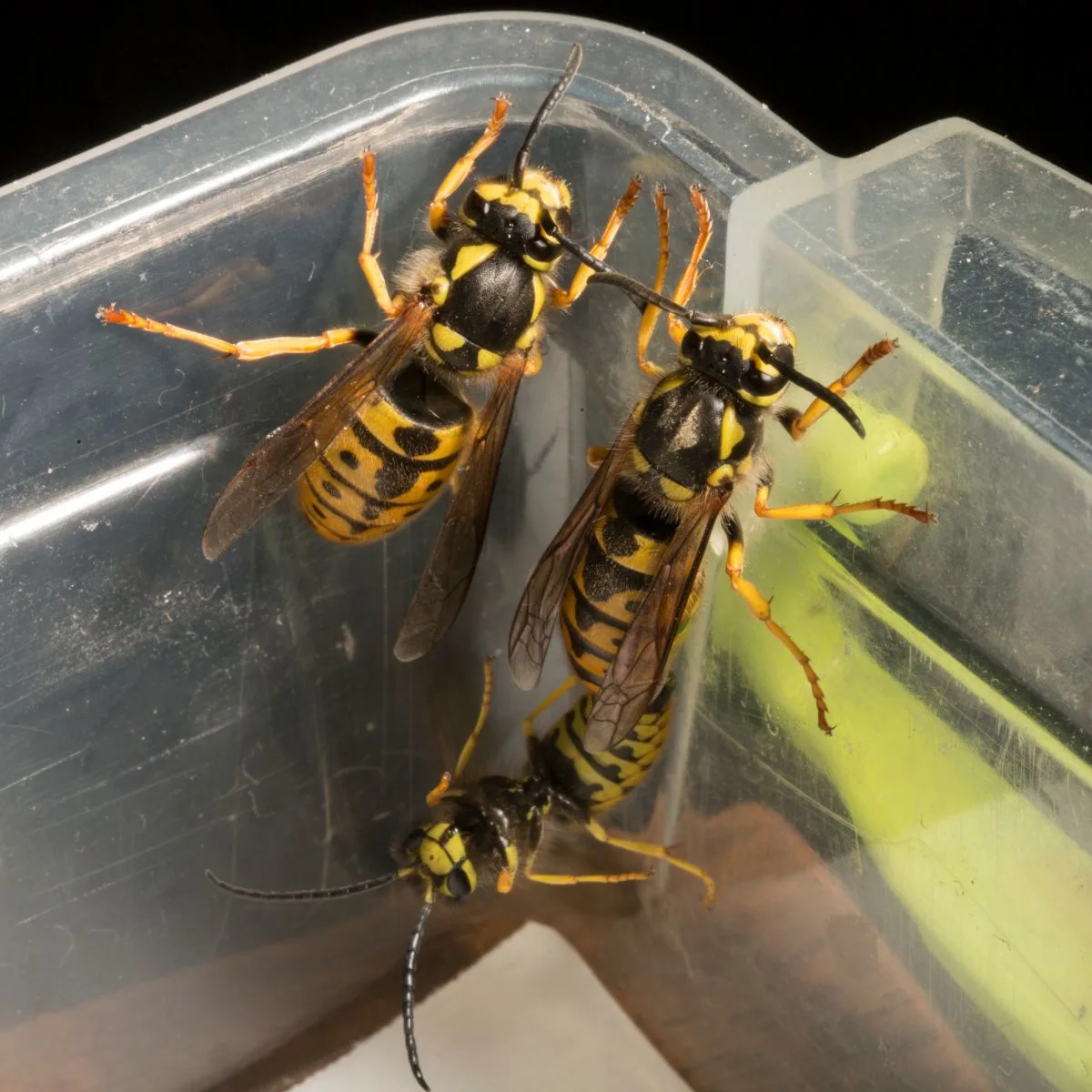
In the rich tapestry of symbols and omens that human cultures have woven through the ages, wasps occupy a unique and powerful place.
Far from being mere insects with a painful sting, they are often revered as potent guardians, protectors against evil, and harbingers of good fortune.
This reverence is particularly pronounced in various Asian traditions, where the wasp is seen not just as an insect but as a divine sentinel, safeguarding both the natural world and human endeavors.
The wasp’s role as a protector is deeply embedded in its natural behaviors. In agricultural settings, wasps perform an invaluable service by preying on pest species that threaten crops.
This ecological balance they maintain mimics the role of a guardian spirit watching over the fields, ensuring the bounty of the harvest through their tireless efforts. Thus, in many Asian cultures, the presence of wasps is welcomed and respected, seen as a sign that the land is under divine protection.
This symbolic association extends beyond the fields and into the spiritual realm, where wasps are often interpreted as personal guardians.
Just as they protect crops from harm, they are believed to offer a shield against negative energies and malevolent forces.
In this light, encountering a wasp or observing its diligent work can be seen as a reassuring sign—an indication that one is not alone in their struggles and that there is powerful, albeit unseen, support at hand.
The comparison of wasps to guardian angels draws upon this insect’s dual nature—capable of delivering painful stings yet also performing vital protective roles.
This duality reflects the complex nature of protection itself, which sometimes necessitates harsh measures to ward off greater threats.
Wasps, with their fierce defense of their nests and territories, embody the essence of vigilant guardianship, reminding us that true protection often comes from a place of strength and resilience.
Drawing from these cultural interpretations, the wasp emerges as a symbol of divine guardianship and protective vigilance.
Its presence invites us to consider the unseen forces that safeguard us in our journeys, offering comfort in the knowledge that we are watched over and supported in both visible and subtle ways.
It encourages a deeper respect for the natural world and its inhabitants, recognizing their roles not just as parts of an ecological system but as bearers of ancient wisdom and spiritual protection.
To honor the wasp as a symbol of protection is to acknowledge the interconnectedness of all life and the myriad ways in which the universe seeks to guide and guard us.
It is a call to observe the natural world with reverence and to find in its marvels a source of strength, hope, and spiritual guardianship.
READ MORE: Spiritual Meaning Of Rats
Dream Interpretation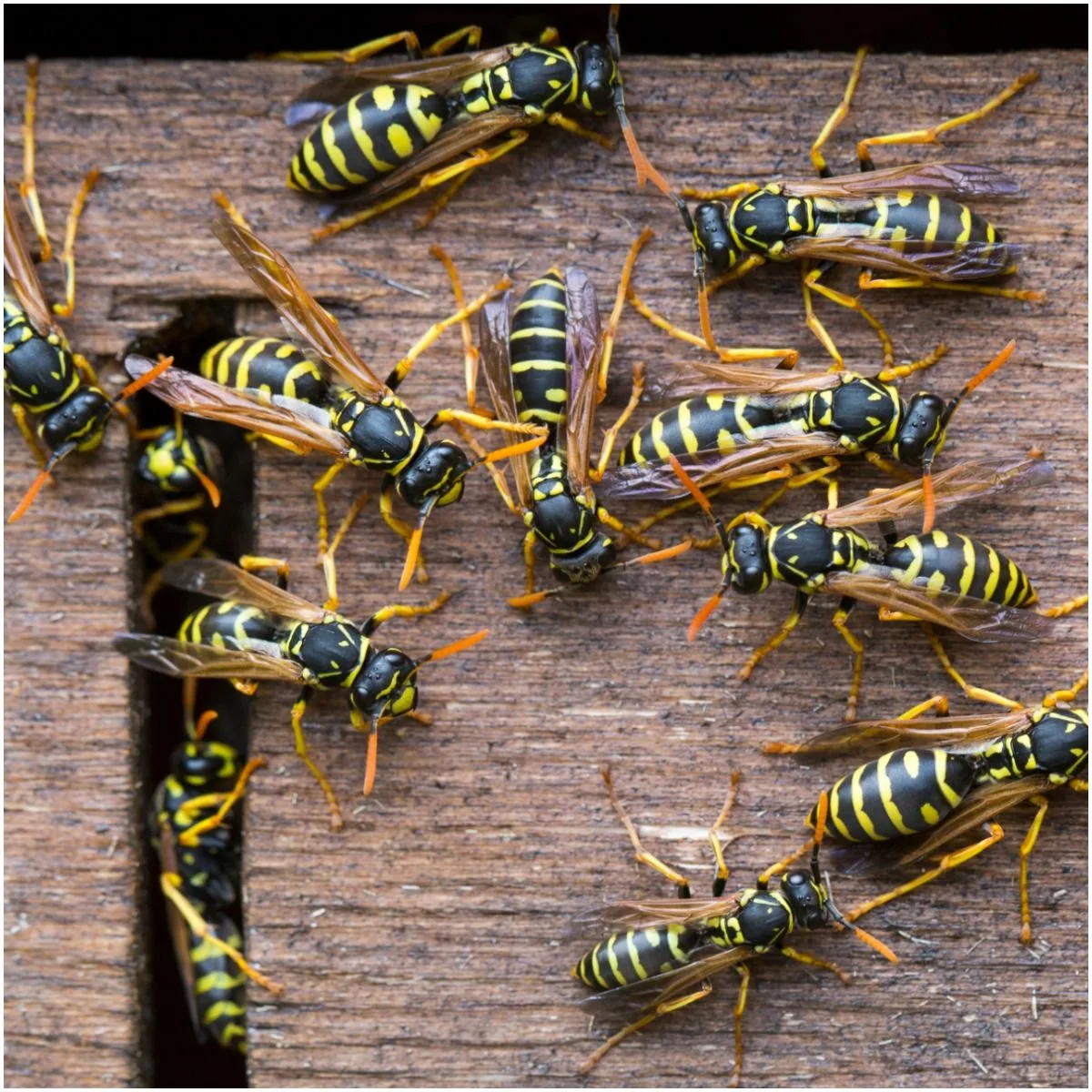
Dreaming of a wasp may predict hard work that goes in vain, without any results, and if you dream of a wasp nest, you will lose something important to you.
When you dream of being stung by wasps, it means that you will experience disappointment, and if you dream of being surrounded by wasps, you will have to protect your interests.
If you dream of whisking away wasps, you will break up with someone dear to you in an unexpected way, and if you dream of a wasp hive, your family and home will be safe from worries.
When you dream of killing wasps means that you will enjoy happiness, and if they are just a few, you will have many worries about your home.
Images credit – Shutterstock & Getty
READ THIS NEXT: Lizard – Spiritual Meaning
References https://www.tandfonline.com/doi/pdf/10.1080/03014223.1991.10757970 https://www.ncbi.nlm.nih.gov/pubmed/17736481 https://www.lshtm.ac.uk/research/centres-projects-groups/wasp
